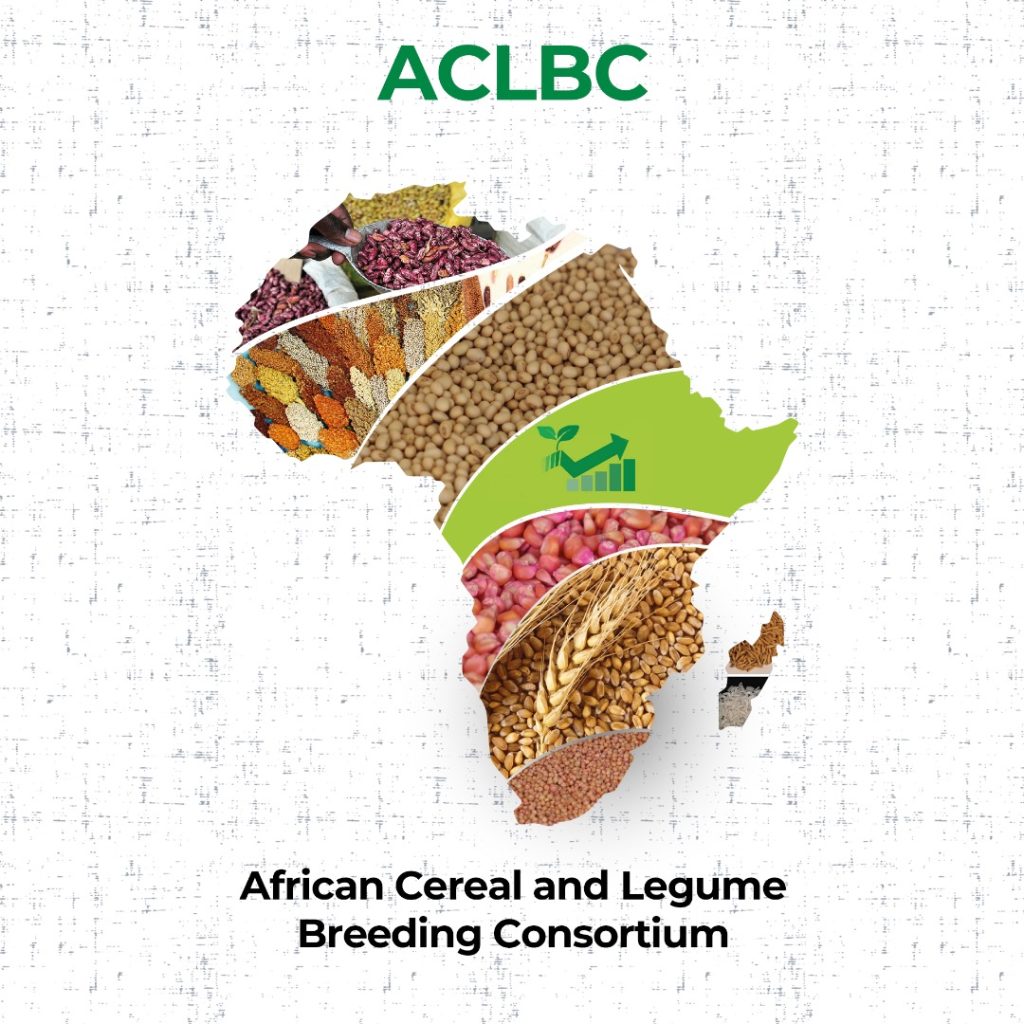Towards a constructive engagement with the private sector through the African Cereal and Legume Breeding Consortium

African cereal and legume breeding programmes are essential for churning out high-yielding, climate-resilient and market-responsive crop varieties. These varieties, alongside farmer access to good agricultural practices, agri-inputs, finance and markets, ensure food and nutritional security in a continent that is grappling with numerous agricultural challenges.
Attracting the private sector through initiatives like the African Cereal and Legume Breeding Consortium (ACLBC) borders on fostering partnerships between governmental organisations, research institutions, and private entities to expedite the development of high-yielding, pest-resistant and climate-adapted cereal and legume varieties.
With a focus on collaboration and investment, this consortium seeks to enhance farm-level productivity and contribute to economic growth by leveraging the strengths of both the public and private sectors.
The history of African cereal and legume breeding is marked by efforts to address food shortages and malnutrition while contending with an ageing population, using traditional crop varieties that are often susceptible to biotic and abiotic stresses. Historically, public institutions have spearheaded these efforts; however, there have been significant strides in incorporating private sector participation in crop improvement programmes.
The formation of breeding consortia, such as ACLBC, represents a contemporary step towards an integrated approach that builds on years of experience in plant breeding, agronomic research and seed system development within Africa.
The Establishment and the Role of ACLBC
Established by the African Seed Trade Association (AFSTA) and the International Institute of Tropical Agriculture (IITA) through the Technologies for African Agricultural Transformation (TAAT), the focal emphasis of such a consortium is multifaceted.
Primarily, it enables sharing genetic resources and breeding techniques to superior crop varieties. Private sector participants invest in crop breeding research, seed multiplication and distribution channels, which facilitate farmer access to seeds of improved crop varieties by farmers more rapidly than the public programmes alone could achieve.
The consortium also serves as an incubator for innovation in plant breeding technologies, harnessing cutting-edge techniques like molecular breeding. Moreover, it creates commercial opportunities for businesses involved in agri-inputs production and marketing with reference to seeds, agrochemicals, farming equipment, and other related services.
Membership and Advantages of ACLBC
Private companies desiring to join the ACLBC must already belong to AFSTA or a related national platform and be focused on the business of plant breeding. Non-profit organisations like research institutes and universities can only join ACLBC if IITA invites them; however, they cannot be full members.
Annually, members can ask for seeds of up to three different types of crops, such as Maize, Rice, Wheat, Sorghum, Millet, Soybean, and particular crops, including the High Iron Bean (HIB), as long as those seeds are available and can be moved safely between countries.
When members get seeds, they will have the sole rights to use them for two years, but this is based on agreements over intellectual property and testing with the technology providers. The seeds can only be requested after all export and quarantine protocols have been met.
Attracting the private sector has its advantages. It can bring much-needed financial resources, management expertise, efficiency in operations, and quick releases of new products due to motives driven by sustainability and competitive markets. Additionally, the private sector brings a market-driven approach that can help ensure that the varieties bred meet consumer preferences and, hence, have a higher adoption rate.
However, the private sector involvement can lead to prioritising profit over the needs of subsistence farmers and neglecting less profitable crops essential for local communities’ resilience but with appropriate coordination and extensive consultations using TAAT’s expansive ecosystem of partners, such possibilities would be mitigated.
The International Institute of Tropical Agriculture (IITA), a member of CGIAR, is a non-profit institution that generates agricultural innovations to meet Africa’s most pressing challenges of hunger, malnutrition, poverty, and natural resource degradation. Working with various partners across Africa, we improve livelihoods, enhance food and nutrition security, increase employment, and preserve natural resource integrity. To achieve its mission, IITA collaborates with various partners and institutions in developed and less developed countries.
AFSTA, on the other hand, is a not-for-profit international organisation headquartered in Kenya and champions the interests of private seed companies in Africa. Its members are seed companies and national seed trade associations, among others. Its members have entrusted AFSTA to interact with regional governments and international and national organisations and promote activities of mutual benefit for its members.
Technologies for African Agricultural Transformation (TAAT) is an African Development Bank flagship programme that represents a transformative initiative to reverse the trend of declining food productivity in Africa. TAAT’s primary objective is to introduce modern food production technologies to 40 million farmers across over 30 African countries, focusing on supporting young people and women in low-income regions. The programme operates through a Regional Food Technology Delivery Infrastructure comprising international, national, and regional research institutions, seed companies, extension service providers, and financial institutions, among other stakeholders.

